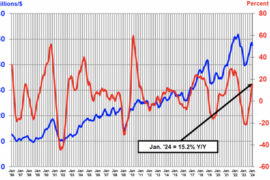Electrocomponents has reported a high single figure decline in sales for the week ended March 22 as the impact of COVID-19 begins to be felt.
Revenue trends worsened across the week and “volume levels vary considerably between markets,” the company noted.
France and Italy where public mobility has been restricted have seen the biggest impact with volumes down significantly driven primarily by lower demand.
Other markets, where restrictions are only just now being implemented, such as the UK and US, are seeing a more modest impact on revenue at this stage.
Before these clampdowns Electrocomponents sales were up 4% in the 11-week period to March 11. EMEA sales were up 3%, Americas sales rose 3% and Asia-Pacific posted an 11% increase.
The company says it remains too early to assess the impact that the unfolding COVID-19 situation will have on trading in the year ending 31 March 2021.
We enter this period of uncertainty in a strong financial position with a cash generative business model.
In anticipation of lower demand levels in the short term Electrocomponents is acting to protect profitability and to conserve cash, while seeking to ensure the Group is well placed to benefit when the recovery takes place.
Discretionary spending is under review and the company is considering suitable government assistance programmes in the markets in which we operate to preserve the productive capacity of the business as far as possible.
“We will continue to support the needs of all our customers, suppliers and employees through this challenging period. Electrocomponents is also assisting the fight against COVID-19 by supporting one of the UK manufacturing consortia as they seek to rapidly develop new medical ventilation equipment,” a company statement added.
“The Group’s strong financial position, coupled with our differentiated online business model, global distribution network and strong supplier relationships, means that we remain well positioned to weather the present crisis and to continue driving growth and market share gains over the medium term.”











Comments are closed.